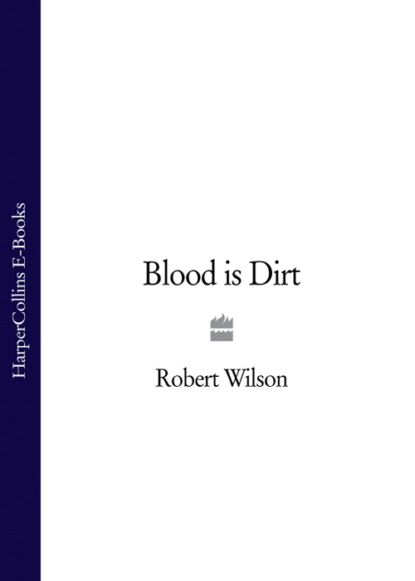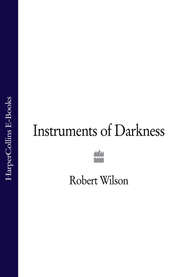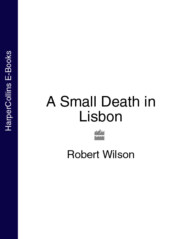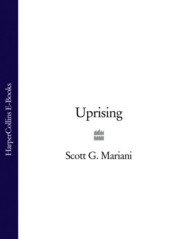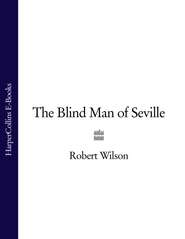По всем вопросам обращайтесь на: info@litportal.ru
(©) 2003-2024.
✖
Blood is Dirt
Автор
Год написания книги
2019
Настройки чтения
Размер шрифта
Высота строк
Поля
‘Come on,’ I said.
‘It’ll stop, for Christ’s sake.’
‘No. I can’t stand it.’
I dropped on to my knees and waited. And waited. And waited.
‘Answer the damn thing and get back in here.’
I stormed into the living room and yanked the phone to my ear.
‘Bagado here. Sorry to disturb you. He’s been found.’
‘Who?’
Who do you think?’
‘I don’t know. Who are we looking for?’
‘Napier Briggs.’
‘Where is he, the bloody idiot?’
‘Down on the railway tracks. He’s dead, Bruce. Dead as the sleeper he’s lying on.’
4 (#ulink_73e0593c-abcd-5b8a-97ca-15a211df1ede)
Cotonou. Saturday 17th February.
There’d been no harmattan this year. That cooling, drying wind, which made all the Africans miserable and me feel human for once in the year, never arrived. It stopped about 100 kilometres north of Cotonou and wouldn’t come any further. Some said it was the pollution, others that it was just a weak harmattan this year but most put it down to the devaluation – anything out of the ordinary just had to be.
Now it should have settled down into the dry season before the April rains, but the weather, like the currency markets, the world economy and my left foot was a mess this year. Cotonou, and other cities along this stretch of coast, had been thumped about by short, savage night-time storms which had left it flat on its back, with no power and secreting fluids from orifices which should have been free and dry. The town got up groggy in the mornings, the people pasty-mouthed and irritable. The buildings shed their conference paint jobs and looked bruised and broken, with mud spattered up the sides from the rain’s kickback. The mud roads were steaming lakes and the first post-conference potholes opened up in the new tarmac like a teenager’s nightmare acne.
There was nothing refreshing about these storms. The sun eased itself into position in no time at all and hammered down so that at eight in the morning, out on the railway tracks, it was already close to eighty degrees, and a thin mist like kettle steam hung in the air. The place stank of putrid salami. My head was coming apart like a coconut after the first machete blow and there was the same flesh-tearing, sucking noise in my ears.
Bagado was walking ahead of me, pacing the sleepers between the tracks, towards a group of people who were standing around Napier’s body. Bagado was looking over the toes of his shoes for clues, small change, anything that might get him through his current lean patch. I limped behind. Yes, it was back.
I wasn’t really thinking about the harmattan. I wasn’t that upset by the night-time storms, which I slept through anyway. The heat and the humidity were hell but you either got used to that or you got out. I wasn’t even torturing myself over Napier Briggs. Bagado had talked me out of that kind of thinking some time ago. Not even the gout was penetrating. It was rolling over a short few minutes with Heike that had left me feeling uneasy.
After Bagado’s news about Napier the flag was well down by the time I’d come back to the bedroom. Heike was lying there with her arms folded across her bosom with no expression in her face.
‘I suppose you don’t like me now that I’m not the birthday boy?’ I’d said. It was a joke but I could see from her look that there was some truth in it.
‘Bagado with some bad news?’
‘Don’t ask.’
‘I won’t.’
I’d pulled on my clothes with her not saying anything and the room full of it. How had it happened? How had the dynamics changed? It hadn’t been Bagado’s call. She was resigned to that kind of intrusion once in a while.
‘Don’t be late for the meeting this afternoon,’ she’d said.
‘I wouldn’t dare.’
I’d pulled her to me and kissed her goodbye. She was stiff, wooden, unyielding as if a stagehand was standing in for the leading lady.
The policemen standing around the body parted as we arrived. Some of them knew Bagado and there was an exchange of pleasantries, the asking after immediate relatives which can take some time in Africa. Then Bagado tried to get down to business with them and they froze. He was speaking to them in their own language, Fon, and they were looking sheepish in more ways than one.
‘They’ve been told not to talk to me,’ said Bagado. ‘They won’t touch the body until the senior officer on duty comes. Commandant Bondougou.’
‘Your favourite. Is he out of bed yet?’ I asked, and he shrugged.
‘Let us, you and I, Bruce, go and sit for a while and … mull.’
‘Mull? You’ve got some vocabulary on you, Bagado.’
‘Education-the only thing they can’t take away from me.’
We crouched down and sat on another rail in the siding. Some crows had collected on the corrugated-iron roof of a warehouse opposite. Their toenails clinked on the hot roof, their wings clasped behind them, polite, waiting for the police to have their fill before they moved in. Bagado and I mulled.
‘I made some expensive calls after you left for lunch yesterday,’ he said.
‘What’d you want to do a thing like that for? He wasn’t even a client.’
‘Professional reaction.’
‘Who’d you call?’
‘Dupont in France.’
‘I hope it didn’t take too long to find out they’d never heard of Napier Briggs?’
‘It did and they hadn’t and they said they certainly wouldn’t use a shipbroker to sell their product for them.’
‘He might have used another company name.’
‘And an alias to buy the product? I don’t think so.’
‘OK, I’ll buy it. Anything else?’
‘Napier Briggs was a very nervous man. He didn’t want to tell us anything about what he’d been doing and he didn’t want the Nigerian authorities involved. He only wanted a private investigation from here, so we can assume his business wasn’t legal. I mean the original business, supplying what he said were sewage treatment chemicals to Chemiclean …’
‘Who he told us didn’t exist.’
‘But who paid him for supplying the chemicals, so they did exist. They just weren’t legal, they weren’t registered as a company.’
‘Was that another one of your calls?’





